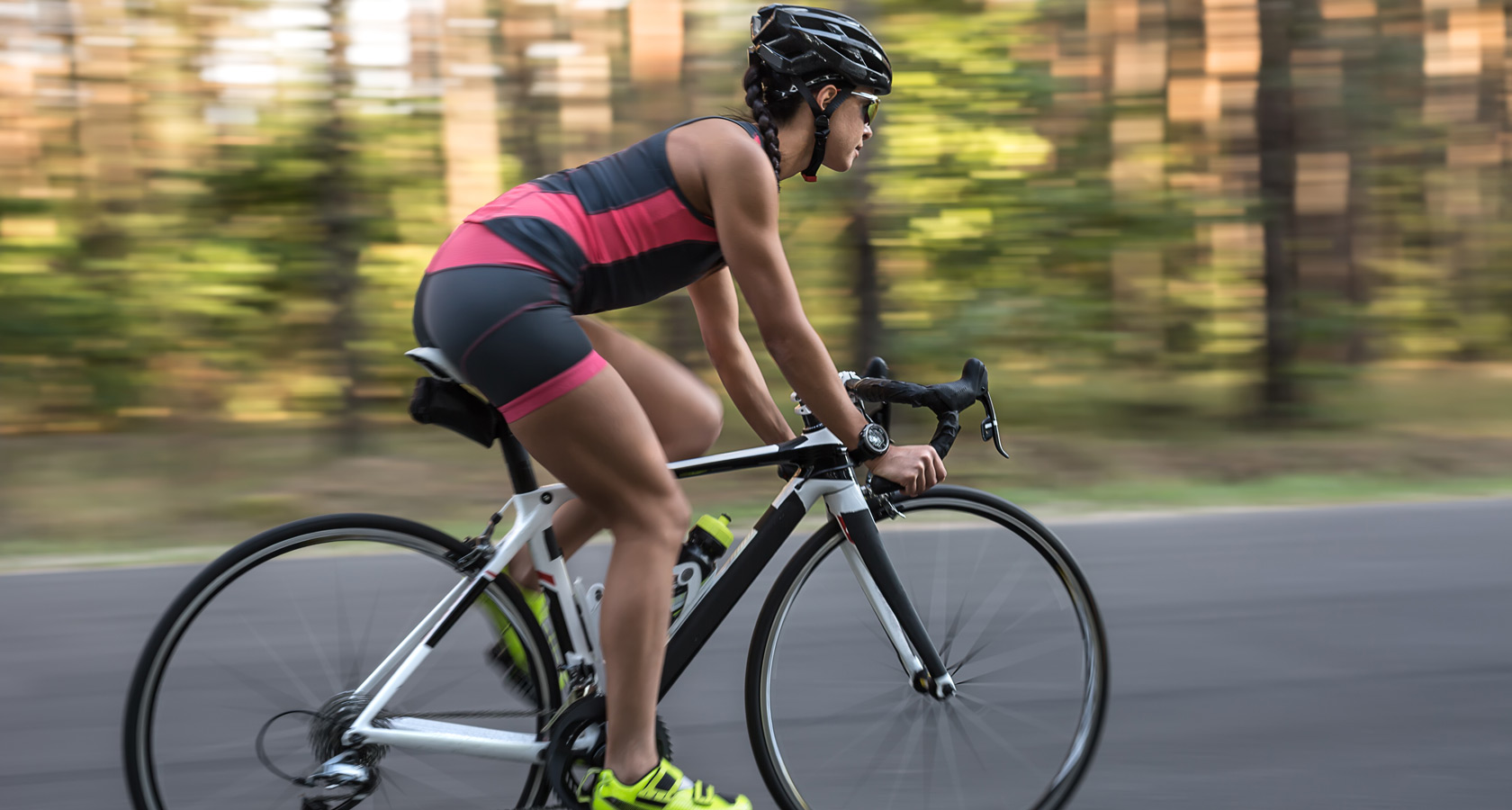Bike-Run Brick Training
Prepare your legs for a fast run off the bike with a mixed bike-run session, also called a brick. It will get your lower extremities conditioned to running on fatigued muscles. If you’re running three times per week, two of your sessions should be on fresh legs. A third run should be done in combination with biking.
Secondly, your cardiovascular system needs to adapt to the different metabolic demands of the aerobar position and upright running. With the use of a heart rate monitor, you are likely to notice a higher rate when running due to the higher impact and the increased demand on your heart. The key to a fast race is to be as efficient as possible, with the end goal being to bike and run as fast as you can with the lowest manageable heart rate. The more energy you save during the first half of your triathlon, the faster you can race the second half.
Get started with these three 60- to 90-minute workouts. These are great workouts to implement into your weekend training routine. Alternate each weekend with a different type of brick workout and you will reap the benefits each one provides. With proper implementation, you will notice a difference in the final leg of your first race of the season.
Negative Splits & Transition Brick
Racing forces your metabolism to switch between different fuel sources. Practicing negative splits combined with easy efforts will help your body adjust to this demanding process.
Workout: 4-8 repeats of 1-mile run/1-mile bike
Duration: 60-90 minutes
How to do it: Each mile of running is a negative split, each mile on the bike is easy effort. Try to transfer between the run and bike and vice versa in minimal time.
Pick a flat 0.5-mile in-and-out course. Set up your equipment equivalent to your race transition area.
Start with an easy-paced run (ex. 10 min/mile), turn around after 0.5 mile and run back 15-30 seconds/mile faster than first 0.5 mile (ex. 9:20 min/mile). Switch to your bike and ride the 1-mile loop.
Repeat three to seven times with each run starting at the same pace you finished the previous run (ex. 9:20 min/mile). Cool down with 10 minutes easy spin on bike.
Duathlon Style Brick
Duathlons are a good way to test your current performance. Workouts which mimic the switch between the sports are important to stress your system in a very specific way. The goal is to pace yourself on the first run and the bike leg so your performance is strong on the second run. Specifically, in this workout, the second run is substantially more challenging than the first.
Workout: 30-minute run/60-minute bike/30-minute run
Duration: 90 minutes
How to do it: For run No. 1, alternate 5 minutes easy pace with 5 minutes moderate pace for a total of 30 minutes.
For the bike portion, bike 60 minutes on rolling hills, 90-100 RPM. Use easy effort on flat surfaces, standing on uphills and a strong effort on downhills.
For run No. 2, build for 21 minutes — start with moderate effort and increase speed every 3 minutes (7 times). Run each 3 minutes 15-20 seconds/mile faster than the previous interval. Cool down 9 minutes with an easy run.
Pump Up Your Brick
Adding strength training exercises to your routine not only makes you stronger and helps to prevent injuries, it also teaches your body’s muscles to handle the higher demanding impacts of racing, such as hills, sprints and overtaking. In this workout, use push-ups and jumping jacks to increase your heart rate, followed by an easy jog to lower your heart rate and improve your cardiovascular recovery time.
Workout: 3 repeats of 15-minute bike/10 push-ups/10 jumping jacks/10-minute run
Duration: 90 minutes
How to do it: Warm up on your bike with 10 minutes easy, followed by 5 minutes build — increase resistance one gear each minute (5x1 min faster).
Bring your bike back to transition, switch into your running shoes and perform 10 push-ups (regular or on your knees) and 10 jumping jacks. Immediately afterward start with a 10-minute run. Jog an easy pace at conversational level — you should be able to talk to somebody without any breathing difficulties. If using a heart rate monitor, wait until your rate recovers to 120-130 beats/minute. Then run the rest of the 10-minute block with moderate effort.
Repeat three times. After three repeats, cool down with a 10-minute easy jog.


